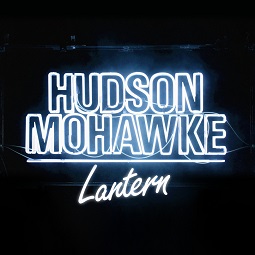Ross Birchard has produced for Kanye West, Drake and Lil Wayne in the past couple of years but he hasn’t released a Hudson Mohawke LP of his own since 2009’s Butter. Albums aren’t exactly necessary to become a household name for your production though, and Hudson Mohawke has been getting along just fine, thanks to a sequence of production credits and assorted releases. These include a couple of fantastic EPs (Chimes and Satin Panthers), and more recently remixes for a few far-reaching names like festival trance outfit Above & Beyond, pop-folk whimsy Paolo Nutini, and Armand Van Helden & A-Trak’s disco re-enactment affair, Duck Sauce. And of course there was the celebrated collaboration with Lunice, called TNGHT, which swamped festival line ups all over the world. Despite partly inspiring the over compressed brattish little brother of southern hip-hop, ‘trap’, I suspect TNGHT’s work will linger on after its poor imitations are relegated to their own footnote in EDM’s history. But it’s clear that this type of production success isn’t quite satisfactory for Ross – he’s claimed in a press release that with his new LP he "wanted to make a classic", and tweeted that "the whole record is me doing all the things I’ve worked on for other people for myself now". As a result, Lantern is, roughly speaking, a product of the greatest artistic freedom Hudson Mohawke has so far been able to enjoy.
What has he done with that freedom? Well it’s definitely the closest he’s come to a concept album, but instead of a lengthy intro and outro, both the beginning and ending of the opening and closing tracks are heralded with an endearing sample of Ross’ little sister whispering "Hudson Mo". It’s intimate, it’s personal, but it’s also got a wonderfully childish sense of humour about it: such watermarks are usually reserved for DJ drops and low-level promotion, yet here they are given grandeur. The production itself is filled with braggadocio: the Rinse-premiered ‘Ryderz’ effortlessly brings soul-inflected, sample-based hip-hop into 2015, going as far as surpassing Kanye West and Che Pope’s work on ‘Bound 2’, as the D.J. Rogers sample is gleefully pitched up, and plays with ease alongside rolling hi-hats and trance synth leads, glued together with warm tape hiss. Even Hud Mo’s considered deployments of the 808s are paced with grace; restrained, and never clichéd. He blends these seamlessly with his own signature, flatly acoustic drum programming, blasting out rhythms drawing from half time hip-hop, to Jersey and B’more, which can be seen at its best on tunes like ‘Scud Books’ and ‘Lil Djembe’.
It’s these tracks that yearn for rappers, but it seems Ross is trying to show us something new here – the guest vocalists on Lantern are all singers. There’s the first single, ‘Very First Breath’, where Hud Mo revisits 00s dance-pop with Ed Banger affiliate, Irfane, who croons "bring us back, bring us back" for an infectious three minutes of surprisingly cheery, if slightly predictable, heartbreak. It’s refreshing to hear Hud Mo’s bitcrushed Gameboy leads blasting pop hooks outside of commissioned remixes, though the standout vocal take on the album has to be Miguel’s plaintive belter, ‘Deepspace’. Ross remains maturely aware of the space Miguel demands in the mix, tastefully arranging his stuttering synths around the 29 year-old’s soulful performance. Yet he still manages to stick in a guitar solo at the end, and Hud Mo deserves applause for making that seem modest, and also for making that work at all in 2015. The Jhene Aiko feature on ‘Resistance’, however, falls short of this: her balladry seems like an afterthought, and the track’s main riff (sampled from Fatima Yamaha’s ‘What’s A Girl To Do’) seems to have lost all functional rhythm with its newfound syncopation. The feature from Antony Hegarty on ‘Indian Steps’ gets an obligatory mention, as possibly the most introspective Hudson Mohawke produced song ever, although I can’t help but feel that the producer and singer have already made songs that are twice as good as ‘Indian Steps’ but simply aren’t released yet. Antony Hegarty’s new LP will be co-produced by Hudson Mohawke and Daniel Lopatin, and the prospect of that is unavoidably more exciting than ‘Indian Steps’ is.
Lantern is undeniably at its most exciting when Hudson Mohawke is at his most comfortable, whether revisiting the rhythms of TNGHT in ‘Lil Djembe’, or wearing his supposedly low-brow influences on his sleeves in ‘Shadows’. The latter track is built of Hud Mo’s textbook melody-laden beatmaking, infused with 8-bit chiptune instrumentation, its kick drums warping into hardstyle-indebted 909s. In the hands of a lesser abled producer, these reference points might come across with the sneering insincerity of appropriation, but it’s clear that Hudson Mohawke intimately knows the genuine appeal of happy hardcore. He played it as a teenager after all, and has even revisited his previous moniker, DJ Mayhem, for the occasional set of bangers. The closing song, ‘Brand New World’, has the same childish glee about it, as Hudson refigures the dynamic of 80s power rock with his own musical vocabulary, as his DMC-style beatgrid sampling is used to churn out rhythmic power chords more reminiscent of Andrew W. K. than anything we’ve heard from Hud Mo before. The effect is cinematic, hilarious, and overblown in all the right ways. Lantern at its strongest moments shows Ross Birchard perfecting his craft; his productions unabashed, euphoric and naïve. The album has its hiccups, particularly with its collaborations and forays into pop songwriting, and his naysayers will accuse him of missing his mark. Though it’s encouraging for Hudson Mohawke’s future that despite his global notoriety and undoubted success within hip hop, Lantern still shows clear signs of the producer attempting to find his feet, if at times faltering.
<div class="fb-comments" data-href="http://thequietus.com/articles/18139-hudson-mohawke-lantern-review” data-width="550">


